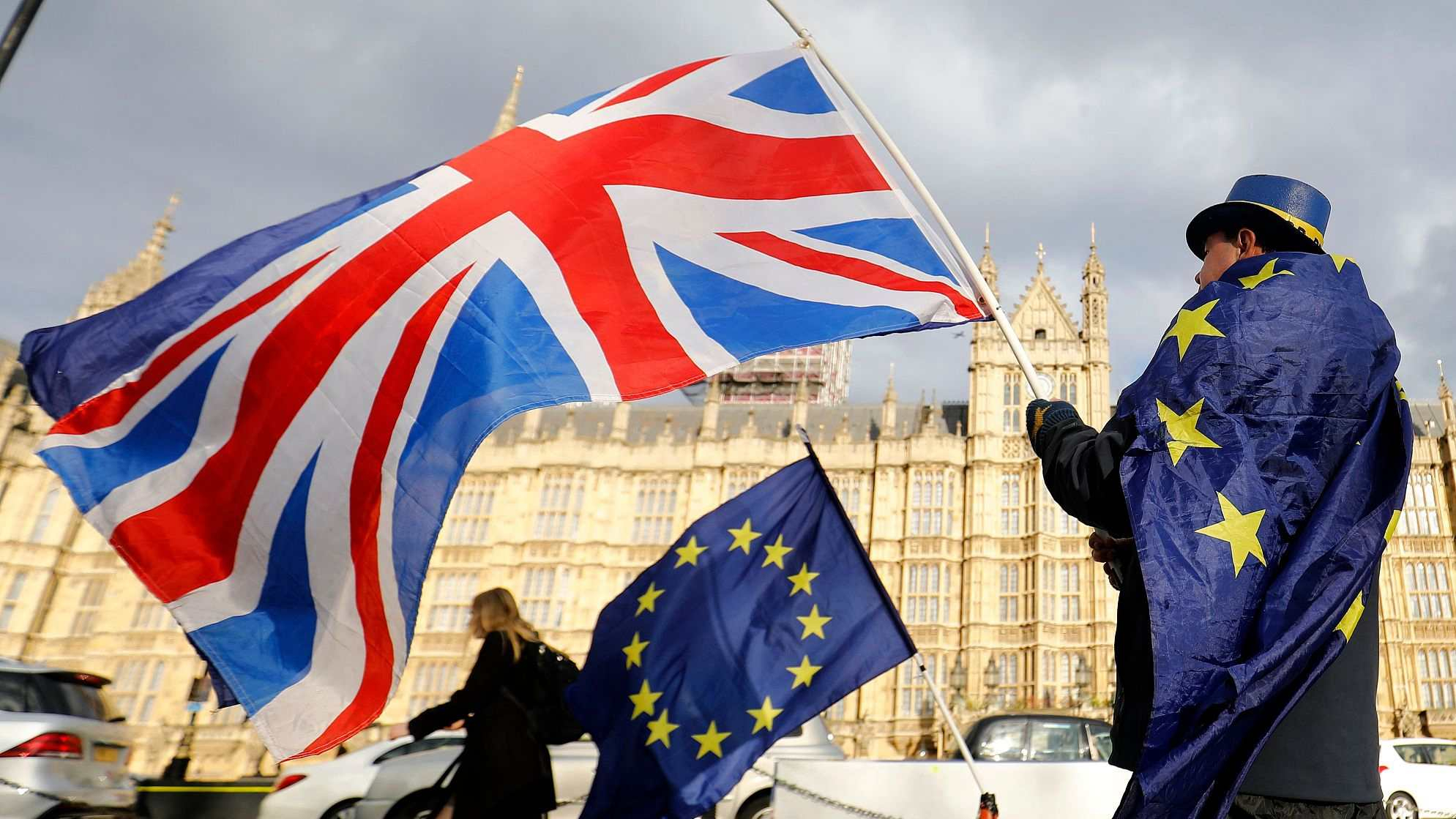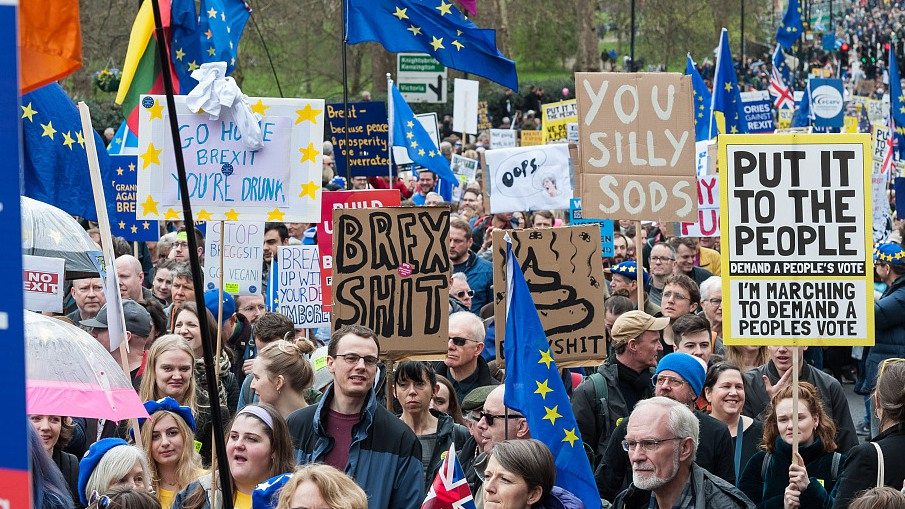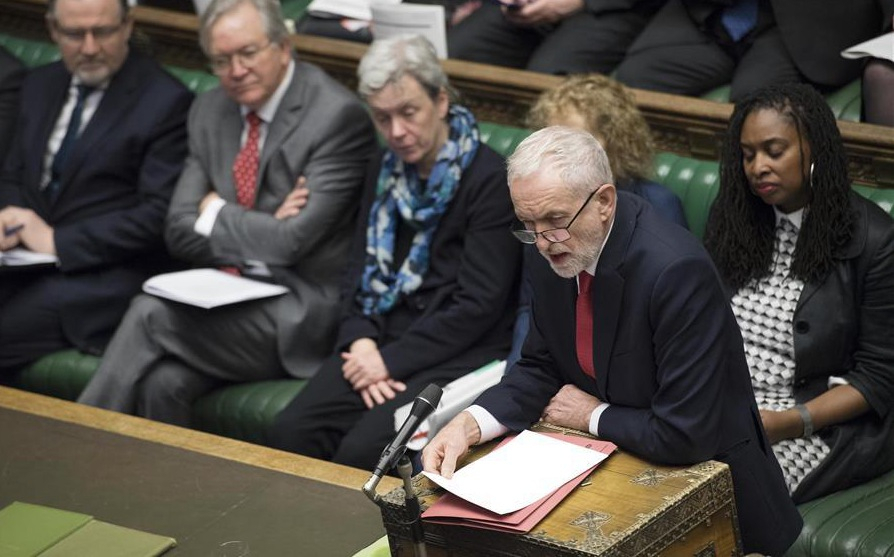
Opinion
08:52, 12-Apr-2019
Is the Brexit new date trick or treat?
Updated
14:17, 12-Apr-2019
Thom Brooks

Editor's note: Thom Brooks is the dean of Durham Law School and Professor of Law and Government at Durham University. The article reflects the author's opinion, and not necessarily the views of CGTN.
In the early hours of yesterday morning, British Prime Minister Theresa May agreed with the other 27 EU leaders an extension on Britain's departure date. Brexit is happening today but now set for 31 October. This date is celebrated as Halloween in the UK, and the question is whether this will be a trick or treat: Does this kick the issue down the road or does it make Brexit easier to manage?
The new extension does both. Giving the UK more time but without any plan for how this time will be spent differently than before does not make Britain's choices much easier. There is a fundamental issue at the heart of this. Voters were promised a Brexit that would make Britain better off during the referendum, and this was echoed by the prime minister when she took office shortly after the referendum result.
The problem is that none of her government's official forecasts does the UK come out of this better economically. Every prediction is that the economy and jobs will suffer at least in the short and medium term. This is a reality that has been a major hurdle preventing May from getting a deal passed in Parliament by MPs who don't want to be blamed for the likely problems ahead for their constituents.

Hundreds of thousands of people take part in the "Put It to the People" march through the capital followed by a rally in Parliament Square to demand a public vote on the final outcome of Brexit, March 23, 2019. /VCG Photo
Hundreds of thousands of people take part in the "Put It to the People" march through the capital followed by a rally in Parliament Square to demand a public vote on the final outcome of Brexit, March 23, 2019. /VCG Photo
With May continues to refuse to change her red lines or compromise, it's unclear what more time will do. Parliament will remain gridlocked. We will be in the same position in October asking for yet another extension delaying Brexit again.
However, there is an opportunity to manage Brexit better. If May is unwilling to compromise on her deal, she might make a U-turn on refusing a snap election or second referendum. An extra six-month extension gives her the time necessary to do either option and attempt to break the deadlock in Westminster.
A new snap election could be useful in changing the composition of MPs. The PM will hope to win a majority that can deliver her Brexit plan. Opposition parties will want to end her government reopening talks with new red lines or revoking Article 50 to stop Brexit altogether.
Or May could call a second referendum on her deal, or Britain remains in the EU. This would give much-needed finality for business in particular. The EU is already in agreement on the plan. If the public backs it, MPs would be certain to support the deal at last.

British Labor Party leader Jeremy Corbyn (front) attends the Prime Minister's Questions at the House of Commons in London, Britain, April 10, 2019. /Xinhua Photo
British Labor Party leader Jeremy Corbyn (front) attends the Prime Minister's Questions at the House of Commons in London, Britain, April 10, 2019. /Xinhua Photo
Both options carry huge political risks for May other than being major u-turns. May could be forced from office in losing an election and see Brexit stopped from a public that has lost confidence in her leadership and its patience over Brexit talks. Such a result would be a total rejection of her time as Prime Minister – and a probable explanation for why she has resisted either option.
This leaves us where we started. A Prime Minister unwilling to change her position, a Parliament and public that does not support it either, and an EU continuing to wait for Britain to make up its mind about what kind of realistic Brexit it wants. Six months extension without a commitment for an election or referendum is simply a half year delay to the UK making a decision.
There is an opportunity for the UK to use this time wisely and bring this to a close. The question now is whether the UK's government is ready to change its position to break the stalemate or more comfortable with uncertainty about the political and economic future that is becoming intolerable.
(If you want to contribute and have specific expertise, please contact us at opinions@cgtn.com.)

SITEMAP
Copyright © 2018 CGTN. Beijing ICP prepared NO.16065310-3
Copyright © 2018 CGTN. Beijing ICP prepared NO.16065310-3